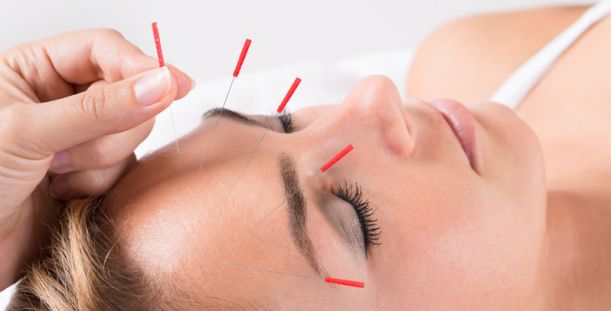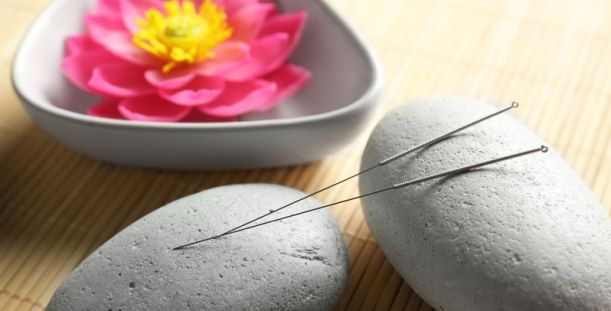Women’s Balance with Acupuncture
Reproductive Health and Chinese Medicine
The study of gynecology has a long history within Traditional Chinese Medicine and its understanding of female physiology is profoundly comprehensive. Some of the earliest medical records detailing gynecological disorders date back to the the Shang dynasty (1500-1000 BC). Inscriptions have been found on tortoise shells describing childbirth problems. The Book of Mountains and Seas, a textbook, from the Warring States period (476-221 BC), lists different herbal medicinals used to treat infertility.
Another textbook, Yellow Emperor’s Classic of Internal Medicine, (Huang Di Nei Jing Su Wen), written over 2000 years ago, describes the physiology, diagnosis, and treatment of many gynecological problems. Statements made in the text include the connection between the kidneys, uterus, heart, and liver through specified channels called the Ren and the Chong. These channels carry Qi (vital life force energy) and blood to the body’s organs primarily responsible for reproductive health.
According to the principles of Traditional Chinese Medicine, one’s health is determined by the quality of Qi and blood circulating throughout the body. When Qi and blood are circulating freely, the body is properly nourished, organs are functioning properly, and fertilization is optimized. Once the flow of energy becomes blocked, bodily functions are disrupted, and pain and disease can occur. Acupuncture works by unblocking stagnant energy through the stimulation of specific points on the channels, thereby restoring balance and harmony to the body’s functions.
Infertility and Traditional Chinese Medicine
Infertility is defined as failure to become pregnant after one or more years of unprotected sexual intercourse. It is stated that approximately 40% is due to the male and 60% to female partners. Many reasons exist causing female infertility. Some common disorders include: Ovulatory failure, blocked fallopian tubes, uterine fibroids, PID, chlamydia, endometriosis, polycystic ovarian syndrome, hormonal imbalances, age, and unknown factors.
The regulation of the menstrual cycle is a key factor in the treatment of female infertility according the principles Traditional Chinese Medicine. Thus, treatments are aimed at promoting a healthy menstrual cycle, boosting Kidney qi, having an unblocked Ren channel, and abundant blood in the Chong channel,
Researchers have confirmed the benefits of acupuncture and herbs in the following areas:
- Regulation of the menstrual cycle
- Stress and anxiety reduction associated with infertility
- Regulation of hormonal imbalances and the endocrine system
- Improved blood flow in the uterus.
- Decreased chance of miscarriage.
- Improved probability of pregnancy for women undergoing in vitro fertilization (IVF).
Treatment Plan
There are four principles of treatment that vary according to each particular phase of the menstrual cycle. Each stage has specified acupuncture points and herbs designed to achieve the treatment goal for that particular phase.
Phase 1: Menstrual phase: Day 1-7. Ensure proper shedding of the uterine lining.
Phase 2: Follicular phase: Day 7-14. Build up the Kidney yin, jing (essence) and blood. Ensure uterine lining is ripe for implantation.
Phase 3: Ovulatory phase: Day 14-21: Assist eggs to mature and to promote ovulation. Kidney yang tonic herbs enhance the surge of luteinizing hormone (LH), which then stimulates ovulation.
Phase 4: Luteal phase: Day 21-28: Ensure proper flow of qi and blood in the Liver, Chong, and Ren channels. Move liver qi and address any PMS symptoms. Conception is more likely when one is more relaxed and at ease throughout the month,.
Because of the complexity of infertility, multiple treatments are needed to ensure optimal success. Fertility treatments vary from person to person, but are usually scheduled for at least twelve weeks (three consecutive cycles). Efficacy can usually be seen within one to three courses. It is advised for those undergoing treatment to have patience and to understand that it takes time to get the body back into balance and to build up the Qi and blood. It is advised to not try to get pregnant until after at least twelve weeks. In conjunction with acupuncture treatment, herbal medicine is highly recommended to significantly improve the possibility of fertilization, a smooth pregnancy, and an uncomplicated birth.






